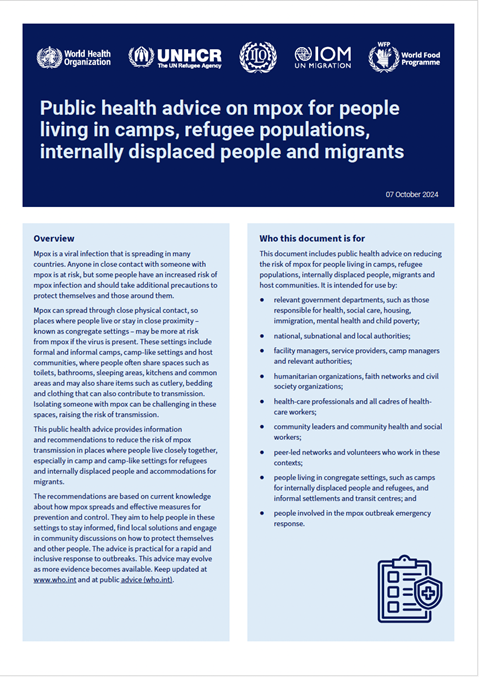Public health advice on mpox for people living in camps, refugee populations, internally displaced people and migrants

Overview
Mpox can spread through close physical contact, so places where people live or stay in close proximity – known as congregate settings – may be more at risk from mpox if the virus is present. These settings include formal and informal camps, camp-like settings and host communities, where people often share spaces such as toilets, bathrooms, sleeping areas, kitchens and common areas and may also share items such as cutlery, bedding and clothing that can also contribute to transmission. Isolating someone with mpox can be challenging in these spaces, raising the risk of transmission.
This public health advice provides information and recommendations to reduce the risk of mpox transmission in places where people live closely together, especially in camp and camp-like settings for refugees and internally displaced people and accommodations for migrants.
The recommendations are based on current knowledge about how mpox spreads and effective measures for prevention and control. They aim to help people in these settings to stay informed, find local solutions and engage in community discussions on how to protect themselves and other people.
The advice is practical for a rapid and inclusive response to outbreaks. This advice may evolve as more evidence becomes available.
